Types of pots: how to choose the right one for your plants
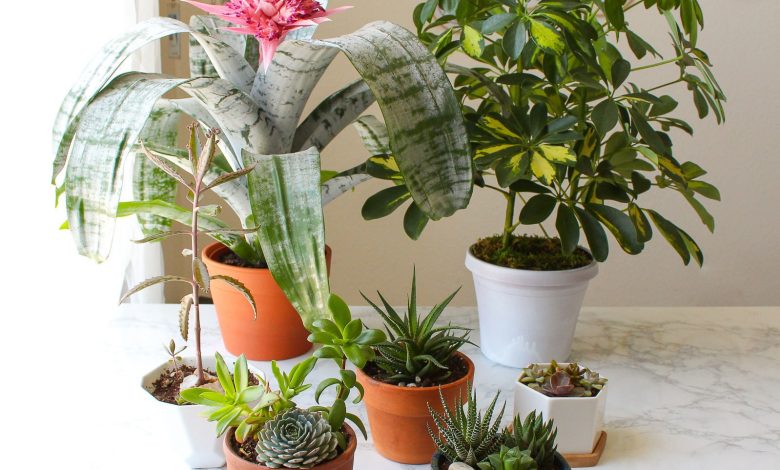
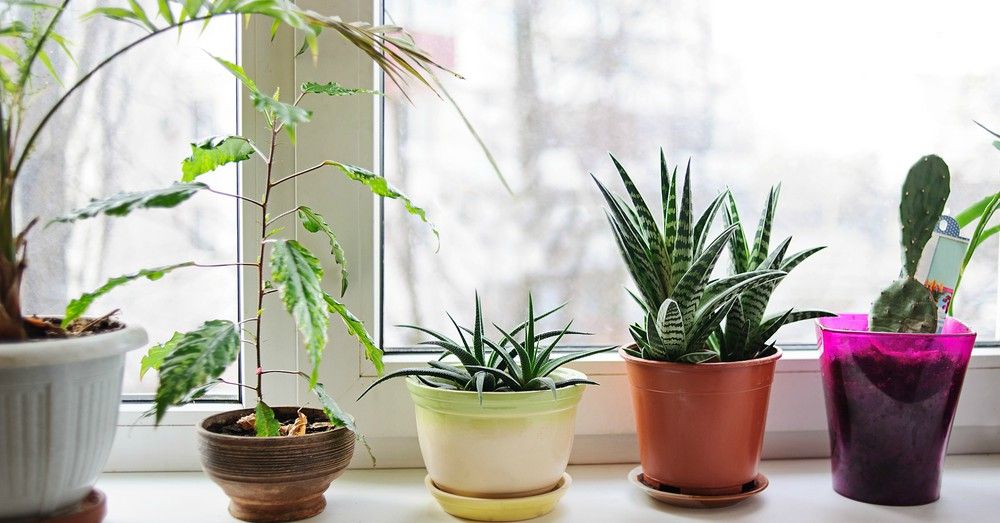
Far from being a secondary aspect, they are a crucial element for the development of a plant. Something that forces us to learn a little more about the types of pots that exist and what their different applications are. The way to hit when we choose it; and make our plant not only look prettier than it is but, above all, grow with health and well-being.
A pot or planter is not just the container in which we have a plant. It is also their home and their natural environment of life. Two compelling reasons why, beyond aesthetic issues, we choose a pot according to the specific needs of a plant.
If a few months ago we saw how to correctly choose a pot according to the material it is made of or its size, today we want to focus on other aspects as important as these.
TYPES OF POTS: INDOOR OR OUTDOOR?
At first glance, we can believe that a pot is still a pot and that it is perfect for any space. However, the types of indoor and outdoor pots vary substantially in the same way that the specific requirements of the plants change in one environment or another.
To begin with, if we have to choose pots for outdoor plants, we will have to consider some fundamental needs:
- Opt for a pot with a guarantee of proper drainage: especially for pots located in gardens or terraces and without a roof to shelter them, it is essential to carefully review this issue. Keep in mind that in pots exposed to rain we cannot control the amount of irrigation, so being able to evacuate any excess is vital to prevent the roots of the plant from rotting. Sometimes, the drainage holes are marked on the pot itself so that we can make them according to the use that we are going to give them.
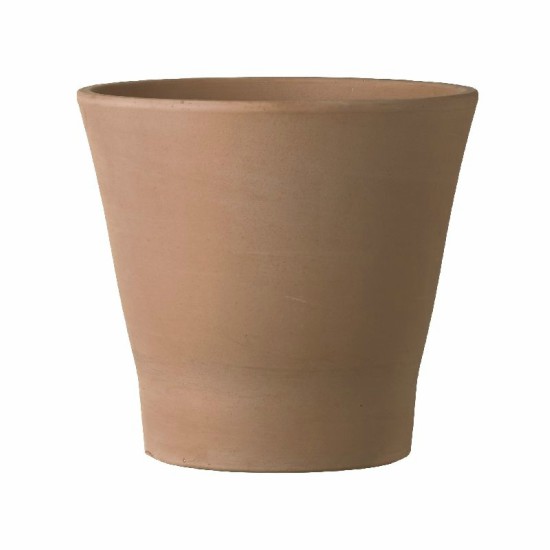
- Choose a material that is resistant to frost and UV rays from the sun: reviewing this aspect will guarantee us that in times of extreme temperatures, both rising and falling, the pots will maintain their original state and their function! In this last aspect, both fiberglass and plastic are ideal. We will always have to avoid metal and glass pots, which can break with changes in temperature.
- Choose pots that facilitate transport: if we see large plants in our garden or terrace, such as palm trees or fruit trees, we will have to choose pots that allow us to attach wheels to be able to move them easily.
When choosing between the types of pots when it comes to indoor plants, we will have fewer demands:
- Any material is suitable for indoor pots: something that includes both glass and metal ones, since the temperatures inside a house are always more stable and balanced.
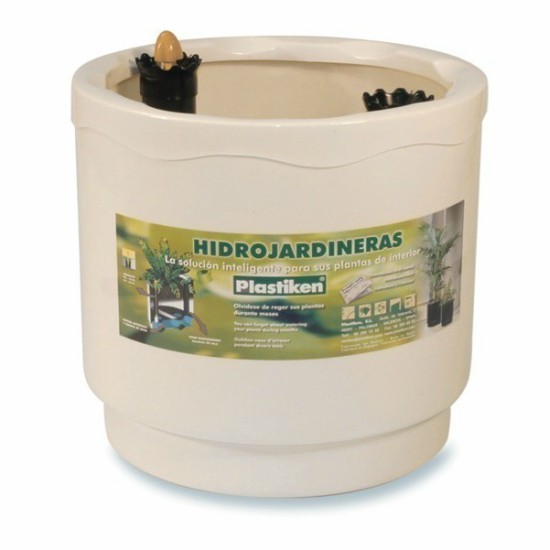
- Opt for self-watering pots: a perfect option for the maintenance of indoor plants but also to minimize cleaning around them. These types of pots have a specific tank for water, which will make it easier for us to irrigate plants that live in environments where there is environmental dryness.
SPECIFIC TYPES OF POTS FOR SOME PLANTS
In addition to knowing the final location of a plant before choosing between the different types of pots, it is also essential to inform us if you have specific needs. And it is that there are plants that, either because of the arrangement of their roots or because of their growth needs, demand specific pots. Something that never hurts to know when purchasing plants, with a view to being able to give the plant exactly what it needs.
And, although the ideal is to find out about each plant, let’s meet some that will require special pots:
bonsai pots
Because of their shallow root systems, tray pots are ideal for both bonsai care and small cacti.
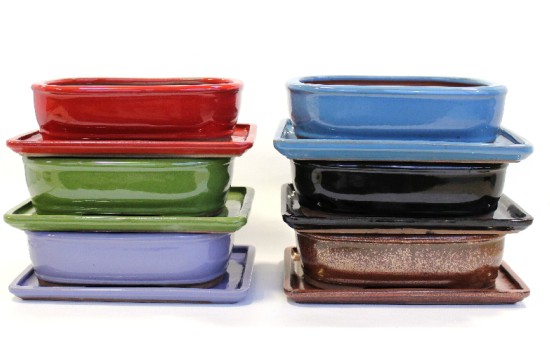
The ideal container so that the roots of both can grow as wide as they need.
Pots for succulents
Unlike the plants that we have just mentioned, succulent plants demand a tight space in which to create their roots. A compelling reason for us to opt for pots with a small diameter.
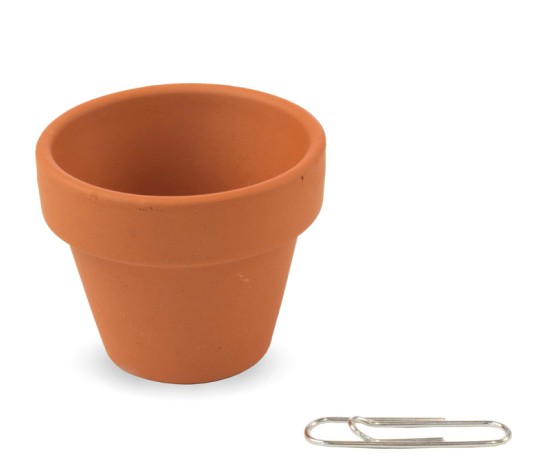
In addition, it is more than recommended that we choose clay pots. Thanks to their porosity, they allow the evaporation of water. Something more than positive for these plants that do not tolerate excess moisture well.
orchid pots
The vast majority of types of orchids demand transparent pots that allow them to have light directly at the roots. Something key not only to ensure the growth of the plant but, fundamentally, for its flowering.
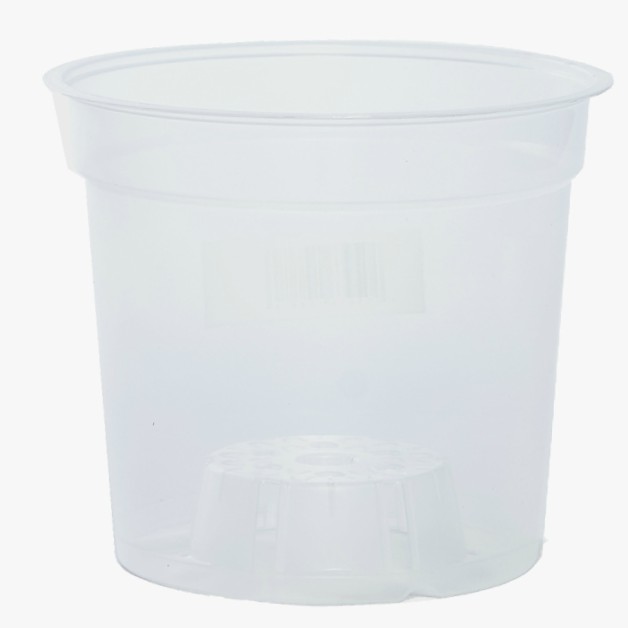
In addition and due to the dangers of excess watering in orchids, these types of pots usually have more drainage holes to guarantee a correct evacuation of excess water.
Different types of pots to achieve the most important thing: that our plants are comfortable and give us their natural beauty.
Something that well deserves to know more about the space in which they live!
If you want to buy pots online, see our selection> Pots and planters

![Photo of Walnut Cuttings: [Grafting, Season, Rooting and Sowing]](https://www.complete-gardening.com/wp-content/uploads/2021/06/nogal_1612570739-390x220.jpg)
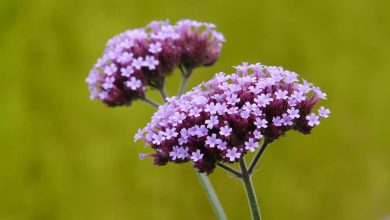
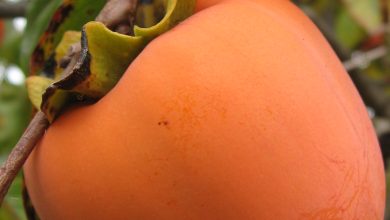
![Photo of Loquat Cuttings: [Grafts, Time, Rooting and Planting]](https://www.complete-gardening.com/wp-content/uploads/2022/08/loquat-cuttings-grafts-time-rooting-and-planting-390x220.jpg)